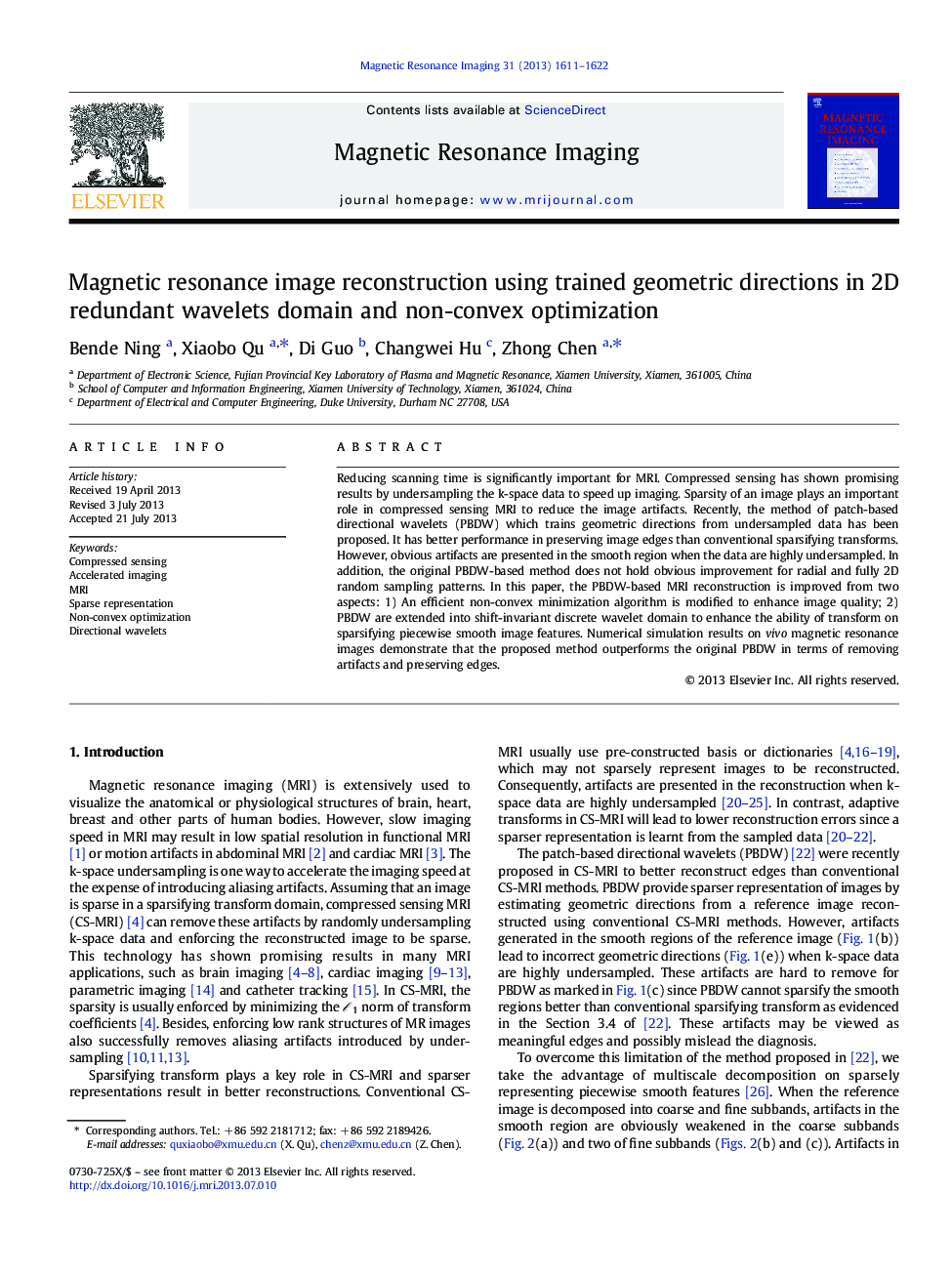| Article ID | Journal | Published Year | Pages | File Type |
|---|---|---|---|---|
| 10712657 | Magnetic Resonance Imaging | 2013 | 12 Pages |
Abstract
Reducing scanning time is significantly important for MRI. Compressed sensing has shown promising results by undersampling the k-space data to speed up imaging. Sparsity of an image plays an important role in compressed sensing MRI to reduce the image artifacts. Recently, the method of patch-based directional wavelets (PBDW) which trains geometric directions from undersampled data has been proposed. It has better performance in preserving image edges than conventional sparsifying transforms. However, obvious artifacts are presented in the smooth region when the data are highly undersampled. In addition, the original PBDW-based method does not hold obvious improvement for radial and fully 2D random sampling patterns. In this paper, the PBDW-based MRI reconstruction is improved from two aspects: 1) An efficient non-convex minimization algorithm is modified to enhance image quality; 2) PBDW are extended into shift-invariant discrete wavelet domain to enhance the ability of transform on sparsifying piecewise smooth image features. Numerical simulation results on vivo magnetic resonance images demonstrate that the proposed method outperforms the original PBDW in terms of removing artifacts and preserving edges.
Related Topics
Physical Sciences and Engineering
Physics and Astronomy
Condensed Matter Physics
Authors
Bende Ning, Xiaobo Qu, Di Guo, Changwei Hu, Zhong Chen,
